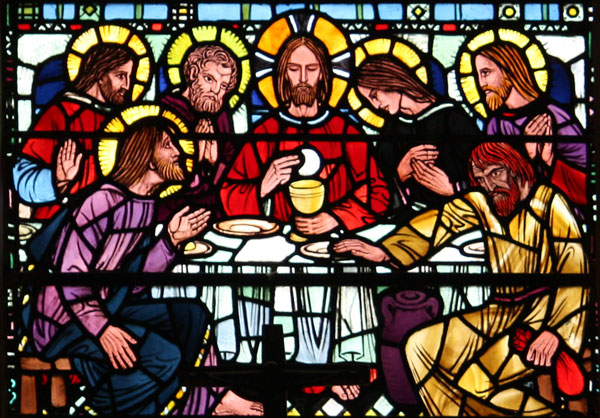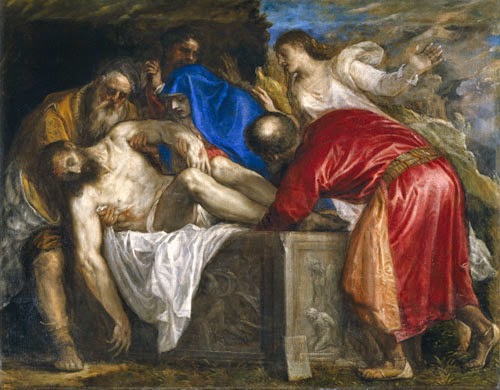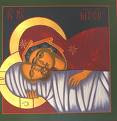On reaching Jerusalem, Jesus entered the temple courts and began driving out those who were buying and selling there. He overturned the tables of the money changers and the benches of those selling doves, and would not allow anyone to carry merchandise through the temple courts. And as he taught them, he said, “Is it not written: ‘My house will be called a house of prayer for all nations’? But you have made it ‘a den of robbers.’” (Mark 11:15-17)
In Holy Week, we commemorate the final week of Jesus’ ministry, leading us to Good Friday and Easter Sunday. On Palm Sunday, we remembered his entry into Jerusalem amid cries of “Hosanna” from the crowd of followers recognizing him as God’s messianic king. This is recorded in all four books of the Gospel — it is a significant event.
What happened next is also recorded in all four books, although John locates it differently from Matthew, Mark and Luke. It is the account of Jesus overturning the tables of the money changers in the temple. Though often thought of as “cleansing” the temple, it is more about Jesus’
rejection of the temple and what it had become. Over the next few days, Jesus would foretell its destruction, in his teaching at the Mount of Olives (see Matthew 24, Mark 13 and Luke 21). In AD 70, both the temple and the city of Jerusalem were destroyed by the armies of Rome, fulfilling Jesus’ prophecy.
The temple was recognized as the place where God came to dwell among his people. It was where atonement for sin was made so that God’s people could enjoy fellowship and favor with him. For the Jews, the destruction of the temple would be tantamount to the end of the world. However, the temple and its leaders had become corrupt and no longer served their purpose. It was supposed to be a house of prayer where
all the nations, not just Israel, could come and know God. In his rebuke, Jesus quoted from Isaiah 56, where the Lord says,
And foreigners who bind themselves to the LORD to minister to him, to love the name of the LORD, and to be his servants, all who keep the Sabbath without desecrating it and who hold fast to my covenant — these I will bring to my holy mountain and give them joy in my house of prayer. Their burnt offerings and sacrifices will be accepted on my altar; for my house will be called a house of prayer for all nations.
But now it had become a “den of robbers,” a phrase from Jeremiah 7, where the prophet denounced the people of Judah for trying to justify their detestable behavior by appealing to the temple, as if it were some sort of talisman:
Do not trust in deceptive words and say, “This is the temple of the LORD, the temple of the LORD, the temple of the LORD!” If you really change your ways and your actions and deal with each other justly, if you do not oppress the foreigner, the fatherless or the widow and do not shed innocent blood in this place, and if you do not follow other gods to your own harm, then I will let you live in this place, in the land I gave your ancestors for ever and ever.
But look, you are trusting in deceptive words that are worthless. “‘Will you steal and murder, commit adultery and perjury, burn incense to Baal and follow other gods you have not known, and then come and stand before me in this house, which bears my Name, and say, ‘We are safe’ — safe to do all these detestable things? Has this house, which bears my Name, become a den of robbers to you? But I have been watching! declares the LORD. (Jeremiah 7:4-11)
The “money changers” were merely an outward sign of the real problem, which ran much deeper. No one supposed that Jesus was simply clearing out a few bad apples. His action was a judgment on the failure of the temple system to be what God had intended, and a rejection of what it had become. No mere “cleansing” would do.
The Jewish leaders understood perfectly well what Jesus was doing. He was not just rejecting the money changers, he was rejecting
them, too! And it was gaining traction with the people, who were amazed at Jesus’ teaching. So the chief priests and teachers of the law began looking for a way to kill him.
Before a generation passed, the Jerusalem temple, made with human hands, would be gone. But this did not mean that God would no longer have a dwelling place among his people. For the true temple of God was now in their midst. The Gospel of John picks up this theme very clearly from the beginning of the book, where it speaks of Jesus as the “the Word”:
In the beginning was the Word, and the Word was with God, and the Word was God … The Word became flesh and made his dwelling among us. (John 1:1, 14)
Jesus himself is God dwelling among us! This is temple language. Even the Greek word for “dwelling” relates to the Old Testament language of the Tabernacle in the Wilderness, the forerunner of the temple (see
The Shekinah Dwelling).
Then in the second chapter of John, after the story of Jesus turning the water into wine, we find Jesus clearing the temple courts. Not surprisingly, this upset the Jewish leaders:
The Jews then responded to him, “What sign can you show us to prove your authority to do all this?”
Jesus answered them, “Destroy this temple, and I will raise it again in three days.”
They replied, “It has taken forty-six years to build this temple, and you are going to raise it in three days?”
But the temple he had spoken of was his body. After he was raised from the dead, his disciples recalled what he had said. Then they believed the scripture and the words that Jesus had spoken. (John 2:18-22)
In John 14, on the night of the Last Supper, before Jesus is taken away to be interrogated by Herod and Pontius Pilate and then led to the cross, Jesus speaks of God’s dwelling place not only
with us but
in us:
If you love me, keep my commands. And I will ask the Father, and he will give you another advocate to help you and be with you forever — the Spirit of truth. The world cannot accept him, because it neither sees him nor knows him. But you know him, for he lives with you and will be in you. I will not leave you as orphans; I will come to you.
Before long, the world will not see me anymore, but you will see me. Because I live, you also will live. On that day you will realize that I am in my Father, and you are in me, and I am in you.
Anyone who loves me will obey my teaching. My Father will love them, and we will come to them and make our home with them. (John 14:15-20, 23)
Here is the divine Trinity — Father, Son and Holy Spirit — making their home in us. This is intimacy with God that the temple at Jerusalem could never even come close to approaching.
When Jesus cleared the temple, he was not doing a bit of remodeling to the old place. He was clearing the way for the true temple of God to be revealed through the cross and the resurrection.



![Sinaia Monastery, Romania interior of the Old Church [finished in 1695]. Photo by fusion-of-horizons. Remix by Jeff Doles. https://www.flickr.com/photos/fusion_of_horizons/6155185976/](https://3.bp.blogspot.com/-xUmC57dGxJ4/VvVAFVTDmcI/AAAAAAAAEMU/pR9XpToWc5EZW-6zDeDhv50aYw51pTlMA/s1600/6155185976_4dec05013f_b.jpg)
















